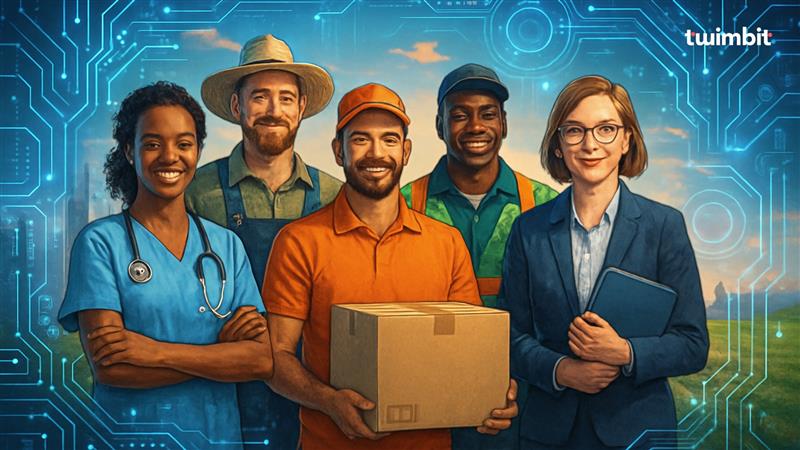Why do some CEOs earn hundreds of millions while countless essential workers, taking real risks and doing irreplaceable work, struggle to get a fair paycheck? The answer lies in a systemic income disparity that overlooks the true heroes behind our daily lives.
In today’s corporate and economic landscape, it’s common to witness vast income inequality. Executives and middlemen secure enormous fortunes, while the hardworking individuals who actually produce, build, care for, and innovate remain financially undervalued. This growing divide calls for urgent reflection and action.
CEO Compensation: The Numbers Behind the Power
Average CEO Pay: In 2024, the average CEO compensation at S&P 500 companies was $18.9 million, while the median U.S. worker earned just $49,500.
CEO-to-Worker Pay Ratio: In 2023, CEOs earned 290 times more than the average worker. In contrast, this ratio was just 21-to-1 in 1965, highlighting the dramatic rise in executive compensation over time.
Top Earners in 2025:
- Elon Musk (Tesla): Compensation package valued at $2.3 billion, primarily through stock options.
- Satya Nadella (Microsoft): Received $79.1 million, reflecting a 63% increase from the previous year.
- Tim Cook (Apple): Took home $74.6 million in 2024.
- Long-Term Trends: From 1978 to 2023, CEO compensation rose 1,085%, while typical worker pay increased only 24%.
Across multiple professions, this disparity is undeniable:
Professions That Keep Society Running—but Don’t Get Paid Enough
- Nurses are the backbone of healthcare, working tirelessly under pressure yet often underpaid.
- Farmers feed billions worldwide but face financial instability despite their essential role.
- School teachers: Teachers shape the minds of tomorrow, nurturing growth, curiosity, and critical thinking. Yet, their dedication and long hours often do not translate into earnings that reflect the transformative role they play in society
- R&D Professionals drive innovation but frequently don’t see financial rewards commensurate with their contributions.
- Garbage Collectors, Landfill Workers, and Street Cleaners keep our environments livable through taxing, often hazardous work that goes underrecognized.
- Sewage Cleaners and Crematorium Workers perform difficult, necessary jobs without societal respect or fair wages.
- High-rise Building Cleaners, Coal Miners, Bridge Builders, and Electric Line Workers take on life-risking tasks pivotal to infrastructure but remain among the lowest compensated.
- Food Delivery Workers bring convenience to urban life with long, demanding hours for minimal pay.
- Babysitters carry significant responsibility with compensation that rarely matches and many more
How AI Can Help Bridge the Income Divide
AI isn’t just a technological trend—it’s a transformative tool that can help reshape economic fairness:
- Disintermediation: AI platforms can eliminate costly middlemen, allowing creators, service providers, and essential workers to connect directly with consumers—boosting their earnings and autonomy.
- Upskilling & Access: AI-powered learning platforms offer personalized, scalable education. Workers in undervalued roles can gain new skills, transition into higher-paying jobs, and access opportunities previously out of reach.
- Fairer Compensation Models: AI can help design dynamic, performance-based compensation systems that reflect the true value of work—factoring in risk, impact, and contribution.
- Data-Driven Policy Reform: AI can analyze wage trends, identify systemic biases, and support evidence-based policymaking to promote wage equity.
- Inclusive Innovation: By democratizing access to tools and knowledge, AI can empower marginalized communities to participate in the digital economy.
Further, AI-driven upskilling platforms enable marginalized workers to gain new competencies, opening doors to better-paying, more fulfilling opportunities. While AI is no silver bullet, its ethical deployment can create compensation models that better align with the real value of work.
Let’s Recognize and Reward True Value
Closing the income gap requires more than awareness—it calls for action. Fair compensation and respect must be prioritized for every essential contributor, from healthcare and food production to sanitation and infrastructure.
What are your experiences with wage disparities in your field? How might AI help create a fairer system?
Enjoyed the read? Let’s take it further.
Connect to unlock exclusive insights, smart AI tools, and real connections that spark action.
Schedule a chat to unlock the full experience
